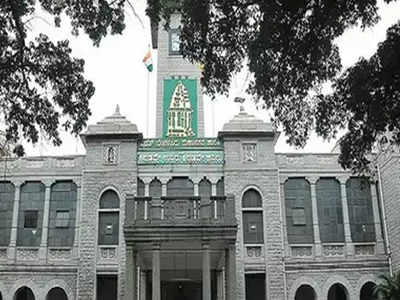Deccan Chronicle 04.06.2013
Babus to be fined for service delay

Hyderabad: If
garbage is not picked up from your area even two days after lodging a
complaint with the civic body or a water connection has not been
provided within 15 days from the date of application submitted, the
concerned officials are liable to pay Rs 100 per day to the complainants
from the expiry of the time frame fixed by the officials themselves to
deliver the particular service.
The Citizen’s Charter is
not a new document, but a revised one has been issued on the directive
of Chief Minister N. Kiran Kumar Reddy. The state government has
initiated to move a legislation to guarantee the Right to Services
Delivery.
Disciplinary action
will be initiated against officials failing to meet the deadline. Many
more services have been listed and officials have been made accountable
in the revised Citizen’s Charter issued by the government for
implementation in 124 urban local bodies in the state as a pilot
project.
The model CC is applicable to all the 124 ULBs
including Vijayawada and Visakhapatnam municipal corporations. “However,
it is not applicable to the Greater Hyderabad Municipal Corporation and
the Hyderabad Metropolitan Water Supply and Sewerage Board which are
expected to come out with their own CCs soon,” said B. Janardhan Reddy,
the commissioner and director of Municipal Administration.
Even
the Central government is contemplating bringing in a legislation to
guarantee the Right to Services Delivery. Municipal Administration
principle secretary Aadhaar Sinha said Citizen’s Charter has been
revised with a view to make officials, from top to bottom, more
accountable or face penalties.
The CC came into effect from
May 15, 2013. If the time frame is not adhered to, compensation would
be paid to the applicant at the rate of Rs 50 per day in case of
services of revenue, engineering and health sections, and Rs 100 per day
in case of services of town planning section.
The compensation
will be recovered from the official who delays the service delivery and
disciplinary action will be initiated for paying more than three fines
in a year. The services will be available in the Meeseva and Municipal
Service Centres.
Success of Citizens’ Charter depends on officials’ drive
Civil
Society organisations and social activists said the citizens’ charter
is an important tool to curb corruption but only if officials adhere to
the time frame, commitment and the CC is implemented effectively.
They
have also strongly advocated the need for the CC going beyond the
service delivery commitment. Citizens’ charter is essential and steps
should be taken to create massive awareness about it so that it reaches
every citizen.
The ambit of CC should not be confined to delivery of services alone but it should also cover the aspect of governance. “Punishment
and penalties should be imposed on officials who fail to consult the
ward committee or concerned elected body, area sabhas and civil society
organisations before sanctioning works and projects to the contractors.
Participation of people in the process of governance is important,”
said Mazhar Hussain of the Confederation of Voluntary Associations.
Forum
for Good Governance secretary Padmanabha Reddy said the citizens’
charters have remained on paper 12 years after various government
departments adopted it and published it. The CCs go a long way in
bringing down corruption as it reduces the interaction between the
citizens and the officials.
The less the interaction, the less the scope for corruption. For
example, if a citizen submits a building plan and as per Citizen’s
charter it is approved and delivered to him in 30 days, he or she would
not require to go to the municipal office and grease the palms of the
official.
“Civil society will
not exert pressure on the government. Let each government department set
its own time frame for the services and live up to its commitment. Why
should the citizen be made to run around offices and pay bribes when he
or she is already paying taxes that go towards salaries of the
government employees,” Padmanabha Reddy said.
The citizens’
charter was implemented in MCH and other departments in early 2000 and
fines were levied on officials for failing to deliver the services on
time. But gradually, the implementation of CC phased out. The
re-implemented CC has to be taken to each and every citizen.

